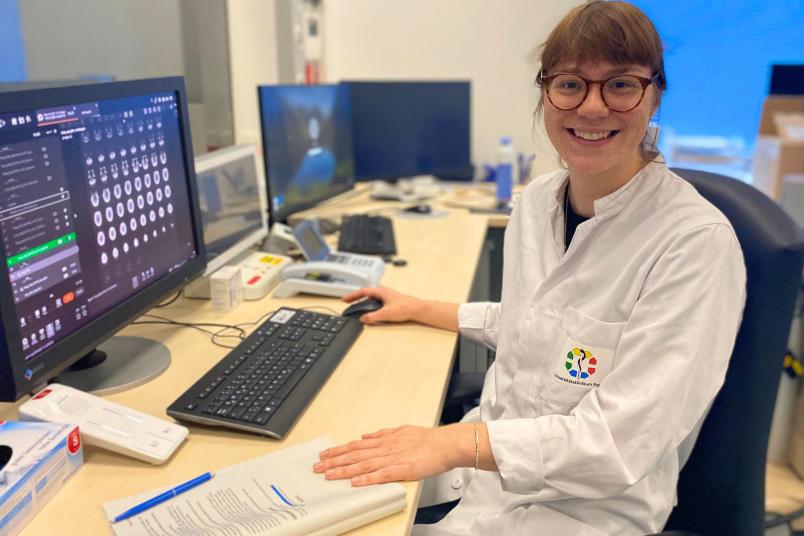
Neuroscience
Helena Hartmann wants to understand what happens in our brains
Which neural processes are happening in the brain when we feel pain? And how does one's own perception of pain affect one's compassion for the suffering of others? This is what Dr. Helena Hartmann has investigated.
What is it about cognitive neuroscience that fascinates you?
I am mainly interested in the interaction between cognition and pain, so how what we think or expect influences what we feel. Let me give you an example: As the experimenter, I tell the participants that they will receive a treatment that will relieve their pain and then I examine them in the MRI scanner. And because of the conversation and their own expectations the treatment works better and they actually experience less pain afterwards. This is also visible in the brain‘s activity.
In experimental studies, you have investigated how one's own perception of pain affects the capacity for empathy. What did you find out?
That is very exciting! It is indeed the case that people who feel less pain themselves, for example because of a painkiller, have less empathy for others' feelings of pain. In the study, I worked with two groups. One group was given a pill. The participants assumed that it was a painkiller. But in fact it was a placebo. The other group did not receive any pill. The pill administration led to less empathy for fellow human beings in pain, which in turn led to less helping behavior.

I am especially interested in the role of expectations in these social processes.
Why did you work with placebos in the study?
There are scientific and practical reasons for that. I am especially interested in the role of expectations in these social processes. Previous research showed that placebos achieve in part similar results as real painkillers and also work through similar mechanisms. Importantly, the fact that even the placebos have such a strong effect on the cognitive and psychological processes shows once again that we need to integrate expectation effects much more strongly into clinical work. In the SFB Treatment Expectation we are investigating exactly that.
You are particularly committed to science communication. What constitutes good communication for you?
I think it's very important to push the doors of the academic ivory tower wide open – like an open house day, but all year round. Research has to be tangible and understandable for people. That's why I also launched the project Science and Fiction, in which I explain scientific articles through entertaining short stories.